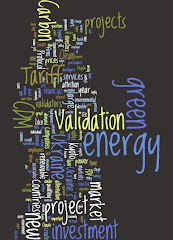Greetings and happy Friday to everyone. More blockchain in the American news today, with Colorado considering the use of blockchain technology to improve data security for state records: https://www.coindesk.com/colorado-new-bill-encourages-state-to-adopt-blockchain-for-data-security
With all this talk of blockchain and distributed ledgers,etc., several folks may be wondering "What is this blockchain stuff we keep hearing about?" I will attempt to describe it here and then comment on the Colorado news.
First and foremost, to understand blockchain you must understand what is distributed ledger technology. Blockchain applies this technology as its core. Distributed ledger technology (DLT) is a mechanism by which all transactions/interactions in a system are displayed to anyone with viewing access to that system. All users/viewers have access to instantly updated copies and records of all transactions in the system, transactions are irreversible, transactions are reconciled by the use of encryption technology, and there are different levels of access control. Blockchain basically replaces the usual trusted third party custodian (for example a bank or other intermediary) with "miners" who validate transactions and allow them to proceed if they are validated.
Think of it as sending money via a transfer without having to use the bank at all, or waiting 2-5 business days for the money to hit the recipient account. Using blockchain the money can be sent directly by one party to another without using a middleman or paying hefty transaction fees, and the money arrives instantaneously. The transaction is verified via a series of complicated proofs undertaken by miners, none knowing what they are doing the proofs for or in what context the proofs relate. They just do the proofs blindly in return for being compensated. The proofs take the form of cryptography and computer algorithms called "hashing" that do not allow miners to trace their work back to the underlying transactions whatsoever.
There are three types of DLT: (1) permissioned and private ledgers (i.e., used by a private firm or government institution) that only allow specific parties to view the ledger and enter blockchain data; (2) permissioned and public ledgers that allow "anyone" to view the ledger, but only trusted users can enter blockchain data (Ripple the cryptocurrency is an example of this); and (3) unpermissioned and public ledgers that alllow anyone to view and enter blockchain data (Bitcoin is the biggest example).
There are also three types of blockchain to date. Blockchain 1.0 relates to DLT being used for cryptocurrencies. Blockchain 2.0 relates to "smart contracts" that use DLT for all financial applications other than money transfers. Blockchain 3.0 relates to government and legal applications, healthcare applications, and the Internet Of Things.
With that said, and without knowing more about the Colorado blockchain proposal at issue, it is likely that they are talking about Blockchain 3.0 being used in combination with some form of permissioned DLT ledger. This can speed up the data transfer process for records, permits and other paperwork by removing the current bureaucratic middlemen. It also can provide more privacy to users and record holders, whose sensitive records and transactions could be hacked from the middleman's database or exposed by other means. Colorado can solve waiting lines at government agencies by moving many processes online using blockchain.
Blockchain is moving into numerous areas and processes in the public and private sector, it is not only about cryptocurrencies and the price of Bitcoin. It is about storage and distribution of data, of clearing transactions instantaneously and matching orders correctly so they cannot be faked. It will be very cool to see how this platform gradually weaves itself into the fabric of our daily lives at many levels, hopefully for the better!
People Following Jon's Blog
My Latest Tweet @ Twitter.com
Friday, January 19, 2018
Colorado Considering Blockchain Solution To State Data Storage And Sharing - But What Is Blockchain Anyway?
Labels: Alternative Investments
amatex capital,
blockchain,
colorado,
cryptocurrencies,
cryptocurrencynews,
distributed ledger technology,
dlt,
jon m queen,
jon mckee queen,
jon queen,
ukraine
Subscribe to:
Comments (Atom)


